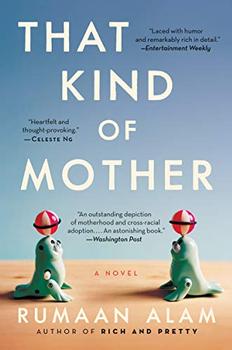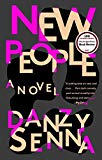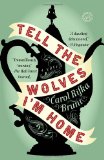Summary | Excerpt | Reading Guide | Reviews | Beyond the book | Read-Alikes | Genres & Themes | Author Bio

Rumaan Alam's noteworthy character-driven novel about motherhood, race, marriage, adoption and life is provocative on every level.
A poet by profession, Rebecca Stone delivers her first child, a boy she names Jacob, in the first several pages. At thirty, the unconsciously privileged white woman feels at loose ends when it comes to carrying out the responsibilities of being a mother. As an American partner to her British diplomat husband, Christopher, who is stationed in Washington, DC in 1989, Rebecca can pull off the appearance and actions of coastal elite socialite perfectly. Mothering is another – overwhelming – matter entirely. The tsunami of primal love she feels for her son clashes against her identity as a cerebral, sophisticated woman.
Enter Priscilla Johnson, former nanny and now hospital breastfeeding consultant. At ten years Rebecca's senior, single and with an adult daughter of her own, this black woman is a deep well of knowledge, experience and patience. Her low-paying work for the hospital is a stopgap position until she can find more remunerative employment. So when Rebecca offers her a job as Jacob's nanny – money being no object for the Stone family – she accepts.
It seems and indeed plays out as an ideal arrangement. Jacob and Priscilla bond. Rebecca is given free time between nursing sessions to disappear into her in-home office and write. All the while she is tapping Priscilla's vast storehouse of all things infant-related. The two women connect at the level of their mutual love for Jacob. This is where the story's essential conflict commences.
Before long and with no real friends of her own, Rebecca begins to feel as though she and Priscilla are becoming friends. She's aware that the two women come from different social and racial experiences, but discounts these differences, naively believing Priscilla can do likewise. She tries to convey this to Christopher, but he is more experienced with overt class strata and views Priscilla, despite all she is to Jacob and Rebecca, as an employee. Nothing more. Rebecca doesn't get it.
Before Jacob turns three, Priscilla gets pregnant and then dies in delivery, leaving a healthy baby boy motherless. Rebecca offers to help. The infant's adult sister Cheryl and her husband gladly accept the offer since their own first child's birth is imminent. It doesn't take long for Rebecca to transfer her feelings for Priscilla to baby Andrew, unilaterally deciding that rather than try for a second, biological child, she and Christopher will adopt him. Not without his own feelings for Andrew and, of course, love for his wife, Christopher agrees but has serious reservations.
I expected at this point in the novel, after Rebecca's naïveté has wreaked potential havoc on her marriage in addition to the inevitable issues of raising a black child in America's racially tumultuous culture, she might get a clue. But I was wrong – which is when I realized that Rebecca is actually not a very sympathetic character. As Andrew grows up she does try to expose him to positive black role models, and he enjoys frequent visits with Cheryl, her husband Ian and their daughter who's his age. But what I wanted from the author was for Rebecca to find the right questions to ask. Weeks after Priscilla's death, Rebecca is having a cup of tea and she, "reached for her tea, careful not to spook the sleeping baby." She immediately wonders, "Was spook racist when a verb, as it was when a noun?" The question just drops right there. I wanted Rebecca to seek answers to such idiotic questions, or be curious enough to explore them further, instead of letting them die, unuttered, unclarified.
While she fiercely speaks her mind to those who see adopting Andrew as a charity case and to his teacher who wants the nine-year-old to learn his place among his white classmates, she remains largely blind to the real struggles he faces as he grows up in a culture that discriminates against black men. Even after Ian relates a story about how the police pulled him over because he's a "Black Man Driving a Mercedes" (he's a car salesman) and forced him to lie face down in the winter slush in his Brooks Brothers suit, Rebecca insists that Andrew will grow up in a better, more tolerant America.
Rebecca's capacity for denial on the one hand and optimism on the other seems boundless. However, in her defense, Alam makes it clear that as a privileged white upper-class woman Rebecca struggles unsuccessfully throughout to find someone, anyone, to talk to about what it is to be black in America. At first she's too shy to ask Priscilla. Christopher hasn't any more idea than she does and seems at ease simply avoiding the issue altogether. But then late in the book when Cheryl confronts Rebecca about her seemingly willful ignorance and unfounded optimism, she becomes defensive. Their conversation is clumsy and uncomfortable. Cheryl is unsure how – and unable – to crack Rebecca's protective shell.
Alam writes poetically, easily leaving plot and secondary characters as specters hovering in the background and only bringing them to the fore as needed. This is truly Rebecca's story, and what is on the page is largely from her point of view. Quite an accomplishment for a male author, and all in all he pulls it off quite well, depicting a late 20th century woman grappling with society's skein of often conflicting expectations.
![]() This review was originally published in The BookBrowse Review in May 2018, and has been updated for the
March 2019 edition.
Click here to go to this issue.
This review was originally published in The BookBrowse Review in May 2018, and has been updated for the
March 2019 edition.
Click here to go to this issue.

If you liked That Kind of Mother, try these:

by Danzy Senna
Published 2018
From the bestselling author of Caucasia, a subversive and engrossing novel of race, class and manners in contemporary America.

by Carol Rifka Brunt
Published 2013
In this striking literary debut, Carol Rifka Brunt unfolds a moving story of love, grief, and renewal as two lonely people become the unlikeliest of friends and find that sometimes you don't know you've lost someone until you've found them.
A classic is a book that has never finished saying what it has to say
Click Here to find out who said this, as well as discovering other famous literary quotes!
Your guide toexceptional books
BookBrowse seeks out and recommends the best in contemporary fiction and nonfiction—books that not only engage and entertain but also deepen our understanding of ourselves and the world around us.